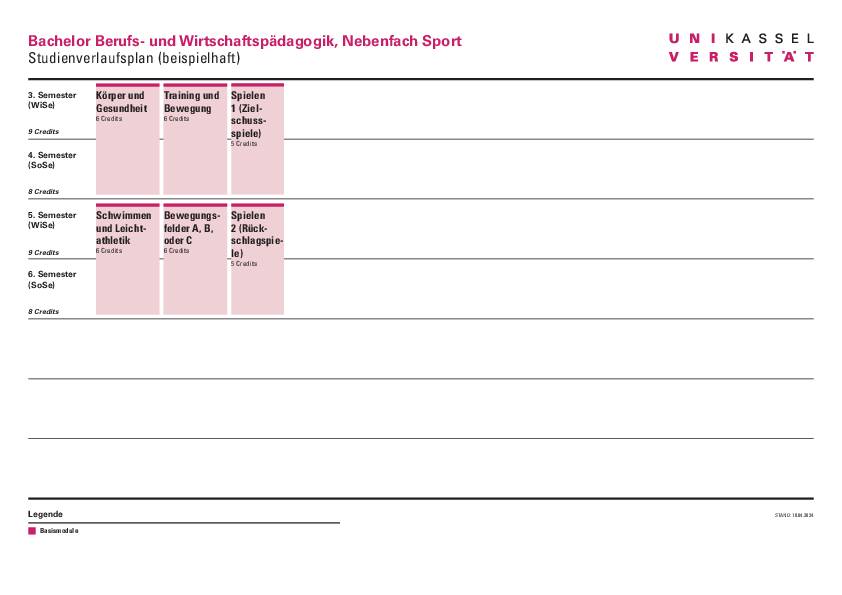How is the course structured?
The content on this page was translated automatically.
The Bachelor's degree course in Business Education lasts six semesters. The course imparts a broad basic knowledge: you will deal with economic problems at company and state level as well as topics from business law. You will also deal with topics relating to business education and business didactics.
The special feature of business education is that students deal with the conditions and development of economic competence and analyze and design learning environments in companies and vocational schools.
In addition, they also learn how to use individual instruments from the scientific toolbox: In the courses on mathematics, statistics and research methods, you will acquire the ability to critically reflect on scientific studies.
Find your favorites from the extensive range of electives: The second teaching subject, including the associated subject didactics, completes your professional profile. You can choose between chemistry, German, English, French, mathematics, politics, physics, religion, Spanish and sport.
Working in a team and the media preparation and presentation of work results promote communication and social skills. Lectures and seminars are supplemented by exercises, tutorials and working groups. This targeted support provides a favorable basis for broadening and deepening your knowledge. The practical phases are a valuable and integral part of the course.
You complete your Bachelor's degree with the successful completion of your Bachelor's thesis.
Overview
The Bachelor's degree program includes modules in the educational and social sciences core study program, in the economics subject area including business didactics and in a second teaching subject. A total of 180 credits must be earned, of which 8 cp are for the pedagogical internship and 11 cp for the Bachelor's thesis.
a) As compulsory modules:
- 3 in Business Administration (Business Administration I, II and III with 6 cp each)
- 1 in Economics I (6 cp)
- 2 in Accounting (Rewe I and II with 6 cp each)
- 2 in Law (HG Law and Law NF 6 cp each)
- 1 in Mathematics (6 cp)
- 1 in statistics (6 cp)
and
- 1 in Business Didactics (9 cp)
b) As compulsory elective modules
- either Economics II or Economics III (6 cp)
- 1 module from specialization 1 (6 cp)
- 2 modules from specializations 2-5 (12 cp)
- 1 module from Economics II or III, Mathematics II, Statistics II, Information Sciences I, Introduction to Business Ethics, Business Psychology or Business Methods (6 cp)
Educational and social science core studies
- Introduction to vocational and business education (4 cp)
- Teaching, learning, instruction (6 cp)
- Observing, advising and supporting in the pedagogical field (6 cp)
- Shaping and developing schools and educational institutions (6 cp)
- Education in a social context (6 cp)
- Practical school studies (8 cp)
Second teaching subject
- German
- English, French
- French, German
- Spanish
- Protestant Religion
- Catholic Religion
- Politics and Economics
- Physical Education
- Mathematics
- Physics
- Chemistry
- Business, labor and social law
The modules totaling 34 credits according to the respective second subject regulations. It is recommended to start with the second subject in the 3rd semester.
A pedagogical internship must be completed.
Assessment: 8 cp
As a rule, you look for an examiner for your Bachelor's thesis at the beginning of the sixth semester. This examiner will give you a topic. The processing time is eight weeks and begins with the announcement of the topic.
The focus of the Bachelor's thesis can be on the subject area of economics, including business didactics, or the area of vocational and business education.
Study structure

You should take 2-4 modules per semester in the field of economics. You can change the order of the modules individually. Please note that
- the specialization modules have different participation requirements, which can be found in the module handbook
